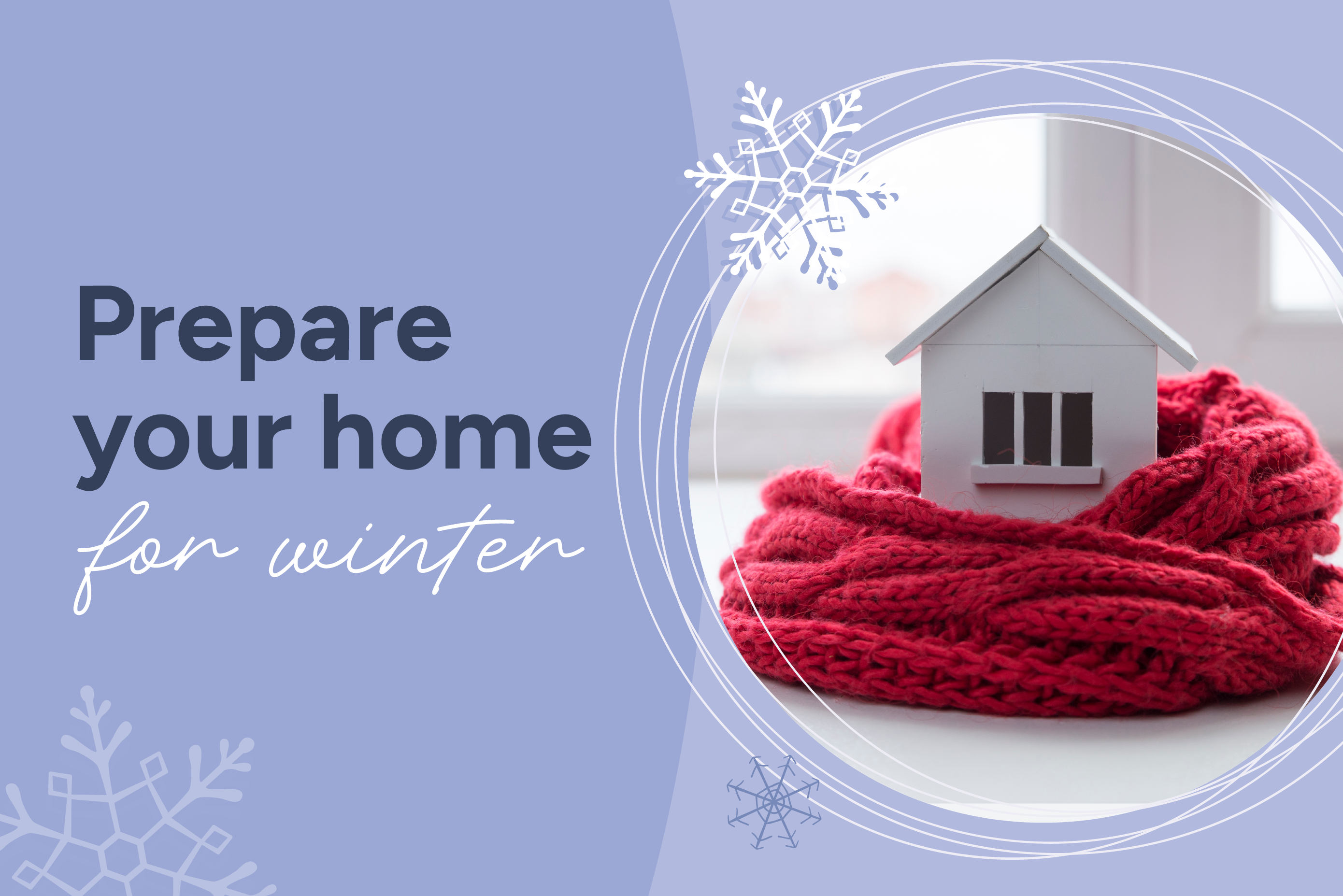Living in Illinois means homeowners have to always be prepared for changes in the weather. The climate encapsulates all four seasons in Illinois, and staying ahead of the game can save a homeowner thousands of dollars and days and weeks of unwanted challenges or issues. Winter is a beautiful season, with falling snow and cooler temperatures. But it can also be fierce, with arctic-cold temperatures, ice and risks of damage to homes.
It may feel overwhelming to think about preparing a home for winter, but it doesn’t have to be. There are a number of simple steps to follow that can be done on the weekend or in spare time. The first thing to know is that water damage, particularly damage linked to frozen and burst pipes, accounts for a major share of homeowner’s insurance claims. During the winter months, it’s a good idea to wrap your pipes and keep the heat at a temperature of 65 degrees or higher. Also, know where the water shutoff valve is located so that it can be quickly shut off in an emergency.
There are a number of tips to help get your house ready for winter in Illinois:
- Make sure your ceiling fan is rotating clockwise to pull warm air up and distribute it throughout the room. This can help to reduce heating costs.
- Protect indoor pipes. Pay special attention to basements, where over one-third of all burst pipes occur.
- Insulate the attic or crawl space.
- Service the furnace and chimney, and annual inspections should be standard practice.
- Remove and store all window screens. Install glass storm windows, creating an insulating layer of air between the window and cold weather.
- Repair loose roofing shingles. Snow is heavy, and it can cause shingles to lift and let water leak into the home.
- Clean and inspect gutters.
- Repair loose or broken patio stones.
- Remove any dead or ailing tree limbs.
- Secure outdoor water sources, including draining any garden hoses before the first frost. Remove the hose from the spigot.
- Mark garden beds, paths, and driveways to assist with snow shoveling.
- Re-caulk windows and doors, sealing any gaps.
- Drain fuel from gas powered engines, such as a lawn mower.
- Check on insurance coverage to avoid any unwanted surprises.
- Prevent door locks from freezing in super-cold climates by spraying a powered-graphite lubricant in each lock.
- Tidy up gardens and help prevent insects from hiding out.
- Mulch flower beds.
- Keep your deck clean; apply sealer if needed.
- Check on snowblower to make sure it is working properly.
- Bring in outdoor plants, furniture and grills.
- Cover the water heater with an insulation blanket.
- Install a programmable thermostat to allow custom temperatures to be set.
- Change batteries and test smoke and CO2 detectors.
Read more at the Caucus Blog here.
